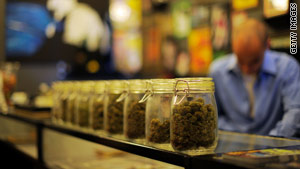 MADISON:
MADISON: Like the mythical Phoenix the state’s largest city is named for, Arizona Proposition 203 managed to rise from the proverbial ashes to stage a comeback from an apparent close loss to a narrow win by about 4,300 votes, state election officials confirmed Sunday. Arizona, with a population of about 6.6 million, is now the 15th U.S. state to pass state legislation.
Of the 15 states, 10 have done so by ballot initiative (CA, OR, AK, WA, NV, ME, CO, MT, MI and now AZ.) and 5 by state legislatures (HI, NM, VT, RI, NJ).
With all precincts reporting, the “yes” votes on Proposition 203 had 50.1 % of the vote with “no” votes at 49.8 %.
Passage of Arizona’s medical cannabis law also expands the list of states that will honor other state’s medical cannabis program ID cards.
According to the
Marijuana Policy Project, whose Arizona affiliate scored the win:
In Arizona, out-of-state ID cards or their equivalents will provide protection for the amount of marijuana allowed in Arizona (2.5 oz) and within the restrictions included in the Arizona law (no public use, etc) IF the patient has a debilitating condition that qualifies under the Arizona law. However, dispensaries in Arizona cannot sell to patients with out-of state ID cards. — Karen O’Keefe, Marijuana Policy Project.
Once Prop. 203 officially becomes law, six states will have reciprocity: Maine, Michigan, Montana, Oregon, Rhode Island, and Arizona.
Here is the relevant section of the new Arizona law:
36-2801. 17. “VISITING QUALIFYING PATIENT” MEANS A PERSON: (a) WHO IS NOT A RESIDENT OF ARIZONA OR WHO HAS BEEN A RESIDENT OF ARIZONA LESS THAN THIRTY DAYS. (b) WHO HAS BEEN DIAGNOSED WITH A DEBILITATING MEDICAL CONDITION BY A PERSON WHO IS LICENSED WITH AUTHORITY TO PRESCRIBE DRUGS TO HUMANS IN THE STATE OF THE PERSON’S RESIDENCE OR, IN THE CASE OF A PERSON WHO HAS BEEN A RESIDENT OF ARIZONA LESS THAN THIRTY DAYS, THE STATE OF THE PERSON’S FORMER RESIDENCE. 18. “WRITTEN CERTIFICATION” MEANS A DOCUMENT DATED AND SIGNED BY A PHYSICIAN, STATING THAT IN THE PHYSICIAN’S PROFESSIONAL OPINION THE PATIENT IS LIKELY TO RECEIVE THERAPEUTIC OR PALLIATIVE BENEFIT FROM THE MEDICAL USE OF MARIJUANA TO TREAT OR ALLEVIATE THE PATIENT’S DEBILITATING MEDICAL CONDITION OR SYMPTOMS ASSOCIATED WITH THE DEBILITATING MEDICAL CONDITION. THE PHYSICIAN MUST: (a) SPECIFY THE QUALIFYING PATIENT’S DEBILITATING MEDICAL CONDITION IN THE WRITTEN CERTIFICATION. (b) SIGN AND DATE THE WRITTEN CERTIFICATION ONLY IN THE COURSE OF A PHYSICIAN-PATIENT RELATIONSHIP AFTER THE PHYSICIAN HAS COMPLETED A FULL ASSESSMENT OF THE QUALIFYING PATIENT’S MEDICAL HISTORY.
36-2804.03. C. A REGISTRY IDENTIFICATION CARD, OR ITS EQUIVALENT, THAT IS ISSUED UNDER THE LAWS OF ANOTHER STATE, DISTRICT, TERRITORY, COMMONWEALTH OR INSULAR POSSESSION OF THE UNITED STATES THAT ALLOWS A VISITING QUALIFYING PATIENT TO POSSESS OR USE MARIJUANA FOR MEDICAL PURPOSES IN THE JURISDICTION OF ISSUANCE HAS THE SAME FORCE AND EFFECT WHEN HELD BY A VISITING QUALIFYING PATIENT AS A REGISTRY IDENTIFICATION CARD ISSUED BY THE DEPARTMENT, EXCEPT THAT A VISITING QUALIFYING PATIENT IS NOT AUTHORIZED TO OBTAIN MARIJUANA FROM A NONPROFIT MEDICAL MARIJUANA DISPENSARY.
Wisconsin AB554/SB368, the Jacki Rickert Medical Marijuana Act contained reciprocity language.
Had the JRMMA passed, Wisconsinites visiting Arizona with medical cannabis would have had their Wisconsin registration respected.
However, as I reported, “State MMJ Program loopholes offer possible protection to Wisconsin patients” (08/09/10), the Oregon and Montana medical marijuana programs are currently accepting applications from out of state patients. Thus, a Wisconsin patient holding a valid Oregon or Montana medical marijuana registration card would theoretically enjoy the same reciprocity with other MMJ states that offer it.
http://www.examiner.com/norml-in-madison/reciprocity-clause-new-az-law-links-6-state-medical-mj-programs








